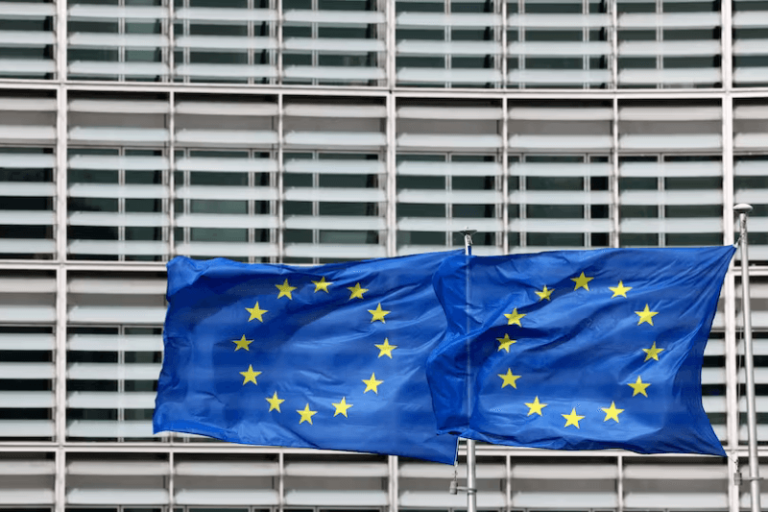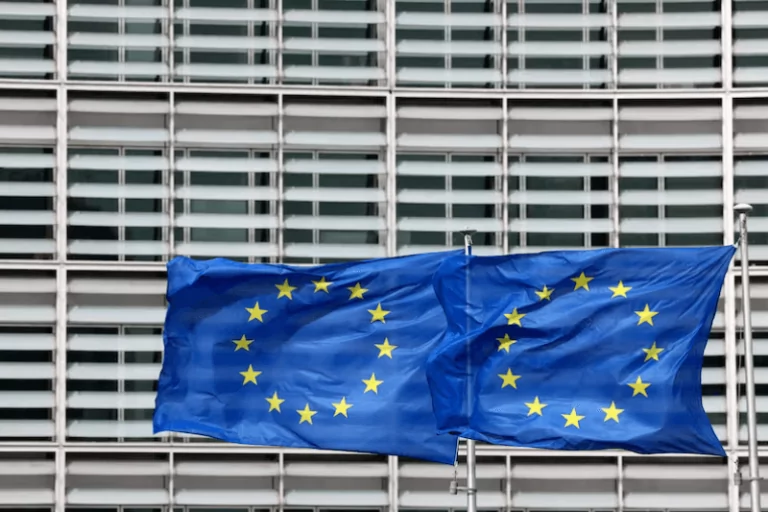

global concerns rise as eu suspends funding to the wfp in somalia
In a shocking turn of events, the European Union (EU) has temporarily halted its funding of the World Food Programme (WFP) in Somalia following a damning U.N. inquiry that uncovered widespread theft and misuse of food intended to prevent famine. This development has raised global concerns about the consequences for vulnerable populations in a region already grappling with humanitarian crises.
Last year, the European Commission contributed approximately $7 million to the WFP in Somalia, a fraction of the over $1 billion in donations the organization received. While EU member states have historically contributed significantly through bilateral arrangements, it remains uncertain whether they will follow suit and suspend their assistance as well.
Balazs Ujvari, a spokesperson for the European Commission, maintained that they had not been formally informed of any financial impact on EU-funded projects. However, he emphasized the EU’s commitment to a zero-tolerance policy against fraud, corruption, or any wrongdoing, indicating a possible suspension.
The decision to suspend funding came after a U.N. investigation revealed that various actors, including humanitarian workers, local government officials, landowners, and security forces, were implicated in diverting aid meant for vulnerable individuals. EU officials, speaking anonymously, affirmed that aid would be reinstated upon the fulfillment of specific requirements by the WFP, including partner verification within Somalia.
The EU’s third source emphasized active cooperation with the WFP to address systemic issues while clarifying that aid was not suspended at that time. On July 7, Antonio Guterres, the Secretary-General of the United Nations, ordered the confidential report, which Devex later made public.
The report revealed the harrowing situation that internally displaced people (IDPs) were in, who claimed they had to give a sizable portion of their cash assistance to those in positions of authority out of fear of eviction, arrest, or removal from beneficiary lists. This revelation led to the suspension of food aid to Ethiopia by both the WFP and the United States Agency for International Development (USAID) three months ago.
Through the WFP, the European Commission provides Ethiopia and Somalia with a sizable amount of funding, totaling 10 million euros ($10.69 million). Notably, the largest humanitarian contribution to Somalia comes from the United States, which provided more than half of the $2.2 billion allocated to the humanitarian response last year.
In response to the situation, Jessica Jennings, a spokesperson for USAID, confirmed their ongoing commitment to protecting beneficiaries and investigating aid diversion. USAID, unlike the situation in Ethiopia, currently has no plans to cease providing food assistance in Somalia.
The federal government’s active involvement in providing food assistance, which had alarmed donors, played a role in the decision to stop aid in Ethiopia. This development was seen as an opportunity to reform the delivery of aid in the country.
The Somali Disaster Management Office, which is in charge of the nation’s humanitarian response, has announced that Somali authorities will look into the U.N. report’s findings. The statement also acknowledged that current aid distribution systems operate independently of government channels.
While official data indicates that there was no famine in Somalia last year, analysts estimate that up to 43,000 lives were lost due to a severe drought, with children under five accounting for half of the casualties. The U.N. assessment described aid diversion as “widespread and systemic” but did not quantify the amount of aid diverted.
Investigators found evidence of aid diversion at all 55 IDP locations surveyed in Somalia. The country, with almost 3.8 million internally displaced individuals, faces complex challenges in aid distribution, including weak institutions, pervasive insecurity caused by Islamist insurgencies, and the marginalization of minority clan groups.
In response to past instances of aid theft during a famine in 2011, humanitarian organizations shifted towards cash-based transfers, which were considered less susceptible to corruption. However, the recent U.N. report revealed that even cash-based systems could be abused. Key culprits identified as “gatekeepers,” powerful figures within local clans, used their influence to extort payments from IDPs.
Humanitarian workers were also implicated in collaborating with gatekeepers to embezzle funds, while security forces contributed by intimidating and occasionally detaining those who refused to pay. These revelations raise worries that a lack of funding may jeopardize the gains made in addressing the humanitarian crises in the area.
Currently, only 36% of the estimated $2.6 billion required for Somalia’s humanitarian response this year has been funded, highlighting the immense strain on global aid budgets. As the international community grapples with the implications of the EU’s suspension of WFP funding in Somalia, the focus remains on finding sustainable solutions to ensure aid reaches those in dire need while preventing further theft and misuse.
Two mobile telecom leaders, MTN Group and Airtel Africa, joined forces to create a new digital infrastructure system throughout African…
South African President Cyril Ramaphosa defended his nation against claims of white discrimination made by tech magnate Elon Musk. After…
Hilton launched Signia by Hilton for its first appearance in Egypt and Africa through its hotel expansions. These hotels at…
UNICEF reported that, nearly 2900 people died of cholera across Eastern and Southern African countries while children suffer most greatly…
Enza, based in the United Arab Emirates, obtained $6.75 million in initial investment funding from Algebra Ventures and Quona Capital.…
US Secretary of State Marco Rubio ordered South African Ambassador Ebrahim Rasool to leave America by March 21 because he…
This website uses cookies.